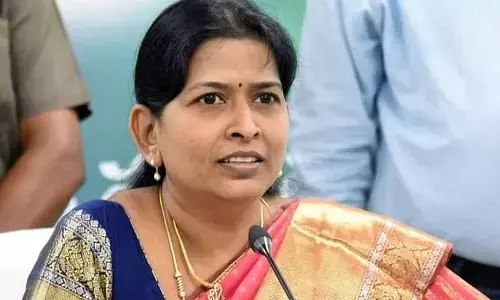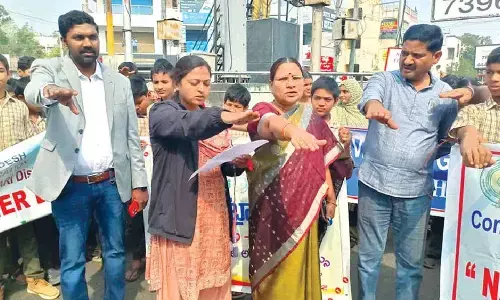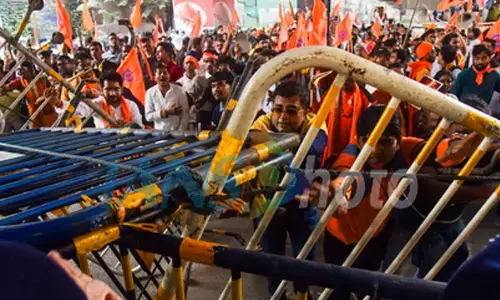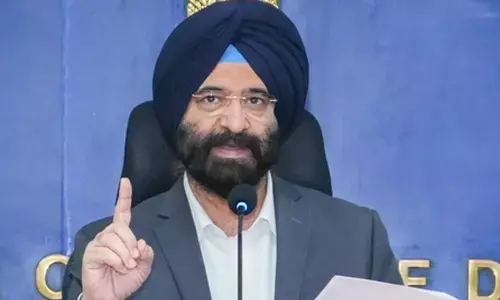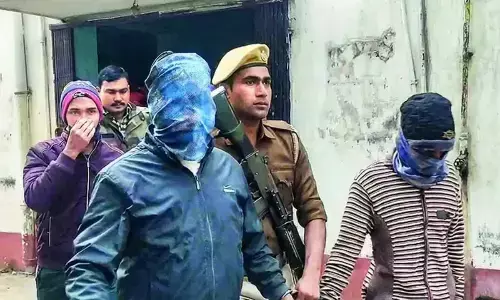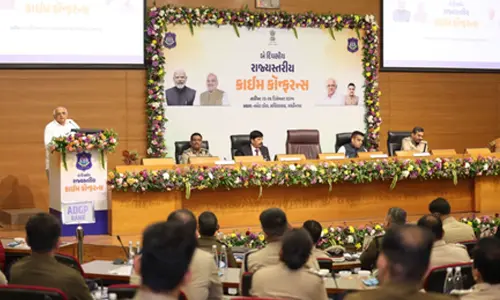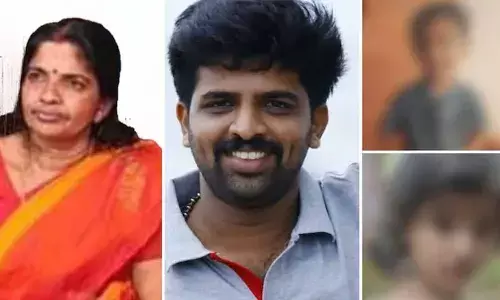Disqualify party that engineers defections

Madabhushi Sridhar: Disqualify Party That Engineers Defections. If X commits theft, it is crime. If C abets him, he is equally guilty according to Indian Penal Code, the criminal law in vogue for more than 150 years.
If X commits theft, it is crime. If C abets him, he is equally guilty according to Indian Penal Code, the criminal law in vogue for more than 150 years. But most unfortunately, Y an elected representative can defect which amounts to serious violation of law, but its neither a crime nor punishment prescribed. Only penal consequence is disqualification of defected member. But the party which abetted the defection or its leader has no consequence at all. Apart from being a violation of constitutional provision, defection is breach of trust reposed in him by each voter and the Party which nominated him or her.
In India manipulating law, Constitutional law, judgment of court of law and even people’s verdict is no crime. No court takes cognizance of it. Constitution also does not prescribe any serious consequences for its violation.
Defection, if dissent, or criticism, or disagreement with party leadership, it is matter of freedom and constitutional right. Defection from a political party along with relinquishment of the positions associated with that party is absolutely no wrong legally and morally, though it is not appropriate if it is done before taking oath.
The Tenth Schedule is very clear in disqualifying defections, which are not prohibited absolutely. Its Paragraph 2 says: a member of House belonging to any political party (no specification that it should be recognized party/national party/regional party etc) shall be (it is mandatory and not may be) disqualified for being member of the House: (a) if he has voluntarily given up his membership of such political party; or (b) if he votes or abstains from voting in such House contrary to any direction issued by the political party to which he belongs…
To answer doubting Thomases, an explanation is added: an elected member of a House shall be deemed to belong to the political party by which he was set up as a candidate for election as such member.
Y cannot say that he is not the member of that party which gave him B form to contest on its behalf. There are two ways of inviting disqualification. One is voluntarily giving up, which includes resignation, or a legislator may straight away join another political party, as that happened in Andhra Pradesh two days ago. Husbands and brothers can defect but the not just elected legislator without attracting disqualification.
The Constitution does not have expression called ‘Political party’ at all, though entire scheme of constitutional governance runs around political parties. The Constitution with Tenth Schedule introduced in 1985 by 52nd Amendment first time brought this expression. The leaders who are arguing today that defection law will not apply to defection of legislator belonging to ‘unrecognised’ party would have argued before 1985 that Constitution does not apply to political parties.
Recognition provides a status higher to political party, which give some privileges like getting a copy of voter’s list etc. Because the YSRCP was not recognised, the death of its candidate did not result in countermanding of election in that constituency. It’s another anomaly of law which resulted in a peculiar situation with the dead person getting elected. In fact death of any contestant used to result in countermanding of election. As some factionists killed independent candidate to avoid defeat by cancelling the polls, the rule was amended and countermanding is limited to only when a candidate of recognized party dies during the elections.
Eleven TRS MLAs were supposed to be disqualified for defection after 2004 elections. Instead of disqualifying them, the authority accepted the resignations. Resultant effect is the same.
Anti-defection law will apply even to independent legislators and nominated members of the Houses. If an independent legislator joins a political party he would lose the membership in the House. Similarly if a nominated member does not choose to join any party within six months of election, he also would attract disqualification if he joins a political party after six months.
The common sense demands that political people should know that the objective of the anti-defection law is to prevent and restrict the defections with the penalty of disqualification. All these provisions mean that if a legislator genuinely differs with programs and policies of the political party which nominated him, he can relinquish membership in the House secured through that party and happily join the other party or remain independent. The centre of present controversy is an MP who got elected from YSRCP has defected to TDP. How can anybody convince the voters now, after elections, that YSRCP cannot develop state but TDP alone would be capable of doing so? Only the difference is that elected MPs belief about ‘power’ is reversed.
The position of the Speaker is at a level higher than an MP, and those who hold it are expected to behave like one who is above partisan considerations confined to a political party.
When in office some of them delay the process and frustrate the law, some others do not take any decision to suit the ruling party.
Need to amend
The law of defection should be amended to make it more effective, so that it will not become a tool of manipulation in the hands of spineless speakers acting as agents of their unscrupulous parties.
1. There should be instant and automatic disqualification for defecting without caring for the Constitutional provisions, who they promise to abide by.
2. Time limit has to be prescribed within which the Speaker has to act either way and the courts also should complete the hearing within one month.
3. The defected person also should be disqualified from contesting elections for at least for two terms.
4. The Political party which encouraged such defection by admitting him into party should be disqualified from contesting at least that seat.
5. The candidate who caused by-election through such unconstitutional act and political party which abetted it should bear the expenditure of the Government for conduct of elections again in that constituency.
Some of the ministers who enjoyed one or two terms of ministry in a party and defected in the last minute were rewarded with re-election while some were rejected in the recent elections. The defection is a form of rank opportunism. It is a shame on Indian democracy and its educated citizens where defected candidates are elected. It is further shame that political parties open the doors and arms to invite any political leader to join even a day or hour before ‘last hour of filing nomination’. It also shows how the parties are bankrupt in lack of any criterion for selecting a candidate. It is a lesson for parties and the voters who encourage and vote these turn coats called aya ravans and gaya ravans (they should not be called Ram).
(The writer can be reached [email protected] )








